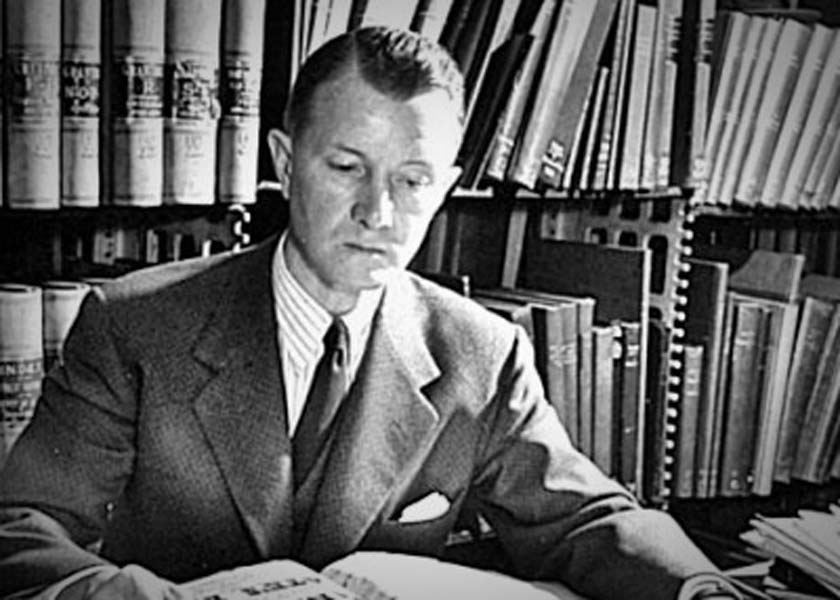Elliott Nugent had a highly successful career writing, directing and acting on Broadway and in Hollywood. His parents, John Charles (J.C.) and Grace Fertig Nugent, were vaudevillians whose act consisted of comic sketches. J.C. wrote his own comic dialogue and also supplied material to other acts. After graduating from Ohio State University in 1920, Elliott moved to New York.
Throughout the 1920s, Nugent had numerous acting jobs, including his first small role in the play Dulcy from 1921-22. Nugent and his father wrote a number of plays which were produced on Broadway. In 1929, he signed with MGM and moved to Hollywood. For several years he acted and wrote screenplays (many co-written with his father), the most notable being Lon Chaney's final picture The Unholy Three (1930). On screen, Nugent is pleasant looking, but lacks presence. A startling exception is his mostly mute, traumatized veteran in William Dieterle's The Last Flight (1931), his final credited film acting role.
Nugent began his career as a film director in 1932 with The Mouthpiece. Between 1932 and 1952, he directed 32 features for Paramount, RKO, and other studios. His films, pleasant and well paced, are mostly comedies. He directed five films with Bob Hope, including The Cat and the Canary (1939) and My Favorite Brunette (1947), three with Bing Crosby, as well as films with Danny Kaye, Clifton Webb, and the comedic duo of George Burns and Gracie Allen.
Among his notable films are an enjoyable version of his own hit play (co-written with James Thurber), The Male Animal (1942), starring Henry Fonda, and a somewhat stiff attempt to capture the essense of The Great Gatsby (1949), as portrayed by Alan Ladd. During the 1940s, Nugent alternated between Hollywood and Broadway. On Broadway, in addition to The Male Animal, which ran in 1940, Nugent starred in the successful comedies Without Love (1942) and The Voice of the Turtle (1943).
During the final years of his career, he appeared on television in a few episodes of Robert Montgomery Presents in 1950 and 1954, Studio One in 1957, and other series. He also produced three plays on Broadway, including The Seven Year Itch, which ran from 1952 to 1955. The combined effects of alcoholism and mental illness had ended his career by 1960. He wrote an autobiography, Events Leading Up to the Comedy, in 1965. Elliott Nugent died in New York in 1980.
Further Reading

